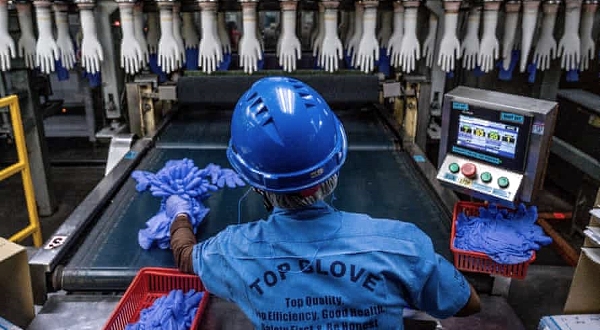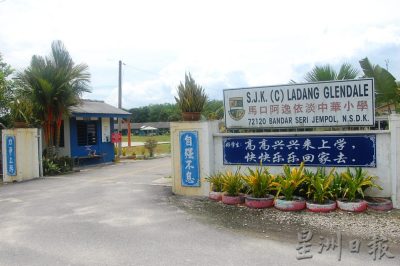By Wong Tai-Chee
As early as December 2018, The Guardian had accused Malaysia's "Top Glove", the largest medical glove company in the world of using forced labour, excessive overtime, debt bondage, and passport withholding to exploit their labour, which did not comply with international labour laws. Subsequently, the Minister of Human Resources of Malaysia directed officials to inspect the Top Glove factory. The investigation report showed that the company did not have forced labour, forced overtime and debt bondage. However, when the Guardian asked the company to respond with materials collected by the reporter from the company's 16 workers, Top Glove rejected the request.
To put it bluntly, the Malaysian labour law is not the British labour law. Although Malaysia is a former British colony, the social movements and labour system reforms of the bipartisan parliamentary system of Britain did not extend to the colonies it exploited, as this did not conform to the colonial interests. After independence, Malaysia, due to its weak industrial foundation, must rely on relatively low-tech products to compete in the international market at the primary and intermediate stages, where treatment and working conditions of workers are seen as most critical elements of competition. In response to this, the Malaysian government has adopted a gradual and orderly pro-capital and repressive trade union policy in order to support industrial development and stabilize corporate and private tax sources.
As to why The Guardian accused "Top Glove" of imposing debt bondage on foreign workers, it must be explained that since they generally cannot afford recruitment fees and international flight expenses, the mode of repayment for such fees was also formulated by a jointly signed memorandum of understanding between the Malaysian government and the labour-exporting countries. The expenses paid in advance by the employer are gradually deducted from workers' payroll after they start work. A foreign worker from Bangladesh or Nepal has to shoulder heavy debts. It is reported that each person has to bear between over 10,000 to 20,000 ringgit.

Looking at the industrialization problems of developing countries since World War II, the dilemma is still inseparable from the three elements of production cost, technical content and international market competitiveness. Among these, the most important one is to break through the production cost. Taking China 30 years after reform and opening up as an example, in order to open up the world market for its low- and medium-priced industries, China shifted radically from the "urban workers' welfare system" of the extreme left during the Cultural Revolution to the "extreme right towards migrant workers without benefits" when it began its urban economic reforms from the 1980s.
Under the new situation whereby farmers are allowed to work freely in cities, more than 200 million rural surplus labourers have poured into the booming large cities in search of a better life, working hard for China's industrialization and modernization. As they have never enjoyed any benefits in the countryside, they don't ask about benefits when working in the cities. They are just happy to have a job and live a good life. They also have no idea what building a world-class power is about in their minds, and they do not understand why Western welfare states say that they can work like ants, regardless of low remuneration and virtually no welfare. As construction workers, they can squat on the construction site to have lunch and do not seem to care when sleeping at night with a simple mat and blanket in the site dormitory!
After the reform and opening up, Chinese farmers have seized the opportunity to improve their material lives and are willing to create wealth for the country and themselves regardless of whether they have welfare. They use the price advantage of "Made in China" to build a world factory and sell their products to all corners of the world. They help create the high China-style economic growth rates, and a gigantic GDP immediately behind the United States in just 30 years. Western capitalist welfare states, especially the United States, are almost stunned and can't believe it.
In the face of Chinese competitors who play cards with different rules, the United States is not prepared to admit defeat and recognize China's rules of game. The United States' response is to use Western humanitarian allegations of forced labour as an argument, because the West has no right to require China or other developing countries to amend their labour laws or make interpretations in accordance with Western court standards and logic. After all, what is the definition of forced labour according to the international law?
If we follow the interpretation of the new regulations published by the United Nations International Labour Organization (ILO) in 2016, "forced or compulsory labour" is defined as "all work or service which is exacted from any person under the threat of a penalty and for which the person has not offered himself or herself voluntarily". The scope of activities covers both public and private sectors. The meaning of threat of a penalty includes direct and indirect criminal sanctions, such as physical violence, mental threats, non-payment of wages, or wage deductions. Penalty also covers depriving victims of their due rights, such as being promoted, changing jobs, or leaving an employment relationship. ILO's supervision comprises equally the responsibility of employers or recruiting agencies in making false promises to the hired.
However, the International Labour Organization also lists five situations that are not "forced labour":
1. Compulsory military work that is enforced in accordance with the needs of national defence;
2. Obligatory work that normal citizens are compelled to perform;
3. Prison or detention labour under the supervision and management of the government;
4. Work that is compulsory for the protection of life or property and other emergency situations under the threat of war or disasters, or disasters; and
5. Simple community service that the community representative believes is required to be performed in the interests of the community.
From the above-mentioned general provisions of the International Labour Organization, we would like to know whether the Xinjiang Uyghur minority group, which is currently hotly speculated in the international community, is involved in the issue of "forced labour". From an objective standpoint, the Chinese Foreign Ministry's denial and description of it being part of the Western anti-China conspiracy theory seem to be unable to convince the Western media. I am more inclined to believe that the Xinjiang Uyghur independence elements have been active for a long period of time. It is very possible that the detained Xinjiang independence suspects are made to perform some prison labour under the supervision of the government. It is normal to send them to non-mechanized cotton fields for work, and this does not fall under the "forced labour" category. Making this clear to the world community can at least win the support and sympathy of Western intellectuals, although Western politicians may not believe it!
Let's look back at the Top Glove incident in Malaysia. In the face of Western politicians' attacks on cheap industrial products from developing countries, Top Glove has also been dragged into the "forced labour" accusation for not having respected human rights. As of today, the US Customs once again seized products of Top Glove worth about US$ 520,000 for violating the US forced labour law. The United States also accused the company of "modern slavery, which not only harms labour but also threatens the economy." "Threats to the economy" obviously refers to threats to the US economy, which is an honest statement.
This article does not seek to support that employers can take advantage of the shortcomings of labour law and wantonly exploit labour in order to achieve rapid economic growth. Indeed, we also take a very cautious look at the human rights and humanitarian standards required by the West, because behind such standards, there could also be a hidden agendum where the Western capital seeks to suppress poor developing countries from breaking through their economic bottleneck. Even so, it is most difficult to strike a balance between the two, and the labour movement is an important part of the balance.
Look at Malaysia again. Since the left-wing Labour Party was banned as an illegal party in 1969, the labour movement in Malaysia has sunk to the bottom. Immediately after 1969, the ruling party United Malays National Organisation began to use the extreme-right racial politics to govern, on the one hand, to protect the interests of the majority of Malays to build a xenophobic cohesion, and to buy out Malay elites to build crony groups. On the other hand, this policy was used to stimulate the dissatisfaction of ethnic Chinese and Indian minorities, which has consumed most of their daily political life energy and attention. Yet, they can hardly resist the Malay racial politics. Fortunately, the unequal distribution of crony interests and the increasing conflicts of interest sharing have given ethnic minorities a chance to breathe and stand up again.
(Wong Tai-Chee has his B.A and M.A degrees in Urban and Regional Planning from the University of Paris, and earned his PhD in Human Geography from the Australian National University. After teaching 20 years in Nanyang Technological University, Singapore, he retired in 2013. He then worked as Distinguished Professor for two years at Guizhou University of Finance and Economics, China, and as Dean and Professor at the Southern University College, Johor until the end of 2018. He was Visiting Professor to University of Paris (Sorbonne IV), Visiting Fellow to Pekin University, Tokyo University and University of Western Australia. His main research interests are in urban and economic issues, and more recently on Malaysian politics. Besides his 15 self-authored and edited book volumes, he has written over 100 academic articles and published widely in international journals.)
ADVERTISEMENT
ADVERTISEMENT


































